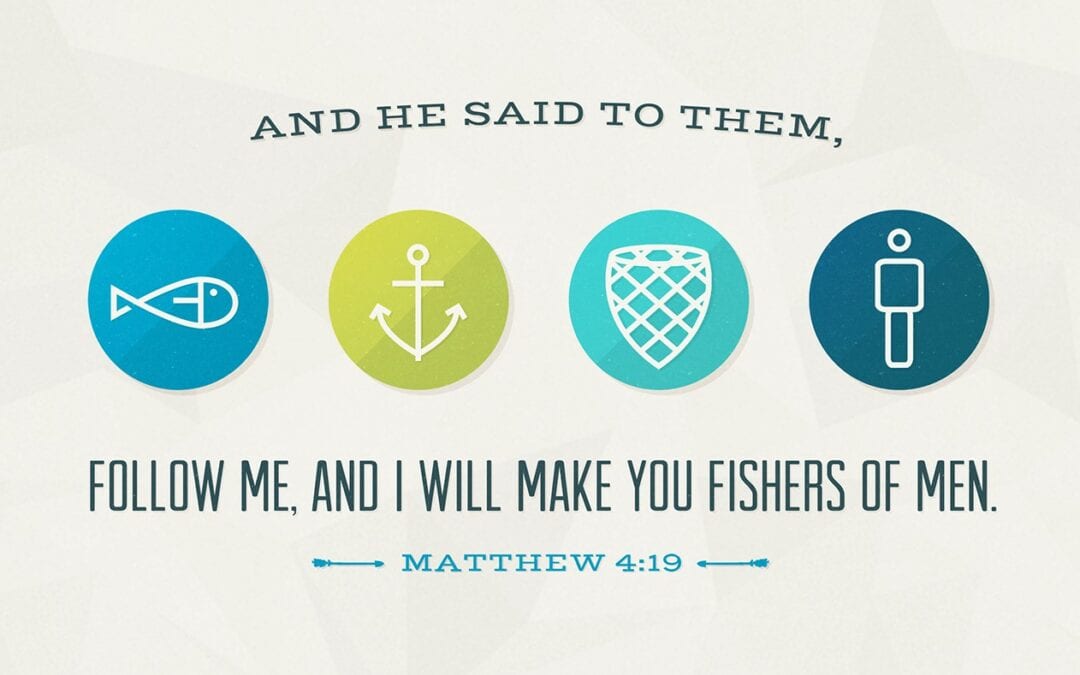I concluded my previous post with the same question I opened it: how does Calvary CRC become a church of disciple-makers?
I felt it was necessary to dive into the history (of sorts) of disciple-making before addressing the question for our own context. There is always a twin danger when seeking to answer questions of this nature: being so set in our ways that we can’t even consider a different approach to answering the question OR being so intent on distancing ourselves from the old ways of doing things that we throw the baby out with the bathwater. Applied to the current question, that means we 1) cannot assume that the way we’ve made disciples for the last several hundred years is the best and only way to do so, and 2) cannot assume that the way we’ve made disciples for the last several hundred years is the worst possible way to do so (and that anything new is automatically better). In truth, this principle applies to nearly all of what we do as the church, but for now I would like to reflect on how it applies to the practice of disciple-making.
For starters, let’s address some of the assumptions we have about our current approach to disciple-making.
People are Actually Able to Retain and Apply What We Say …
… to them from the front of the room – 1-2 times per week. Since I am immersed in the preparation of my sermons every week, I have a tendency to retain most of what I preach. I can remember the majority of my main points from last week’s sermon, and probably most of the messages from my current series. Start to stretch back beyond that and I could maybe re-preach one of those sermons cold at about 50% or less of its original content. When I have the occasional privilege to sit in the pew and listen to another pastor preach, this number drops significantly, especially if I haven’t spent significant time studying the text myself. The same holds true for many others I talk to: we are not able to retain most of what we hear on a Sunday morning and/or evening. For most of us, this is the only instruction we get in the faith for most of our lives. Combine this with other factors, and it really should not come as a surprise that biblical literacy in Canada is at an all-time low.
Only Certain People are Qualified to Teach Others the Faith
This one is half-true. We cannot have just anybody teaching others about the Bible and how to faithfully follow Jesus in all of life. At one time, the pastor was the most educated member of the congregation, and it stood to reason that he would be the one primarily responsible for transmitting his knowledge to others. At the same time, access to education and the general level of education has increased exponentially since the time of the Protestant Reformation.[1] The pastor is oftentimes not the most educated in any given church, in ways lessening the weight the pulpit has. Although the pastor has specialized education in the understanding and applying of Scripture, the role has nowhere near the respect that it once had. That being said, there are also many people in churches with a wealth of life experience and Bible-study who are simply sitting in the pews. Some of them may teach Sunday school or help in the nursery, but most of the wisdom and knowledge they have obtained over life are kept to themselves.
Anywhere from 50:1 to 2000:1 are Practical Ratios for Faith Transmission
This goes back to what I identified in my last post: one teaching the many. In Sunday School or Christian School classrooms, this ratio is decidedly lower. But that leans into our next assumption that I will address shortly. Depending on the size of our church, it becomes easier to be anonymous in the life of faith. A single pastor cannot realistically disciple that many people with any level of effectiveness. The rise of “mega-churches” in the last 30 years has certainly made this more challenging. However, alongside that has been a rise in participation in small group ministry, where people gather together to study the Bible as a group of about 10-12. Research has shown that this practice increases not only the retention of information, but also adds a layer of accountability not possible in churches that do not have such a ministry. As already noted, most of what we hear on Sunday mornings goes in one ear and out the other.
We Should Know Most of What We Know About Discipleship by the Time We Graduate High School
This is implied by how we structure and organize our discipleship programs. When children are too young to sit through a church service, but old enough to start learning about the Bible, they go to Sunday School. Many of the children in the Reformed tradition also begin attending Christian Elementary School around the same time they start in Sunday School. When they are old enough to sit through a service, they ‘graduate’ from Sunday School and begin to learn like the adults do, while at the same time still learning at Christian day school. When they ‘graduate’ from Grade 8, they join Youth Group where they are provided teaching as well as fun activities. Typically, students will take profession of faith Classes and publicly profess their faith before heading off to college or university. After that, there are no formal education programs. This belies an assumption that we should know everything we need to know by this point, because our investment in education beyond the Sunday service(s) is non-existent. Bible Study groups / Small Groups are completely voluntary, and most churches cap out at about 40% involvement in these groups. Participation among the 19-29 age bracket is close to non-existent. What we indirectly communicate: growing in our learning to follow Jesus after High School is optional.
That “Personal Devotions” is an Adequate Supplement to Sunday Sermons
The assumption here is that people are actually reading their Bibles at home. I don’t know what historical statistics are at, but more recent research shows clearly that Christians in North America are reading their Bibles less and less. Others far more involved in this trend and far more learned on the subject have their theories as to why that is, but I am mostly concerned with the fact that it is. In principle the idea is nice: in order to grow in our faith beyond Sunday practices, we should read our Bibles at home regularly. But who holds us accountable to this? The pastor? The elders? Is this even a realistic expectation? Even if we do make this a regular practice, it also doesn’t mean we actually understand what we are reading or how it applies to our lives today (sit down with the book of Ezekiel and a thermos of tea or coffee to see what I mean). We need help, and often it is easier to neglect the practice altogether, rather than do the hard work of studying the text or discussing it with others.
Where do we go from Here?
I’m sure there are many other assumptions I am missing, but these are some of the key ones I have encountered and reflected upon over the years of my education, personal and professional experience. One thing I believe we can all agree on (whether we want to or not), is that we are not disciple-making to our fullest potential. I could take time to propose solutions to each of the above assumptions, but instead I want to again bring us back to the process of disciple-making in Jesus’ day.
Making Disciples the Jesus Way
I already mentioned in my last post the basic concept of disciple-making in the time of Jesus. What Jesus did in choosing the twelve was in no ways out of the ordinary for Jesus’ time. In fact, the typical way this happened with Rabbis in Jesus’ day was that only those most advanced in their schooling could be chosen as a disciple of a respected rabbi. By the time most boys were in their early teens, they had most of the Old Testament (the Hebrew Bible, called Tanakh by Jews) memorized. Those who showed greater aptitude then had the opportunity to follow in the footsteps of a rabbi. Those who did not have the aptitude returned to their homes and to their family trade. Those who wished to become disciples of a rabbi had to approach him, and he would determine whether he felt they were worthy to be his disciple or not. Often, he would drill them on questions about the Torah (first 5 books of the Bible) to test their knowledge. Those selected would then be taken into the rabbi’s home and would live out the next several years under his tutelage. When they became advanced enough, they could become a rabbi and take on disciples of their own.
Two significant differences stand out between this practice and that of Jesus: 1) Jesus’ disciples were the equivalent of “high-school dropouts” and 2) he chose them. The corresponding principles I draw from that are 1) anybody can become a disciple of Jesus (who can then disciple others) and 2) being and becoming a disciple of Jesus is at God’s initiative, not ours. In other words, we are without excuse when we hear the call of Jesus to “follow me”.
One helpful descriptor I once heard about the followers of Jesus in his earthly ministry placed the people into 3 categories: the CORE, the COMMITTED, and the CROWD. The core was the group of twelve disciples who spent those 3 years with Jesus. The committed were the people who were part of Jesus’ entourage, but not his inner circle. The crowd was everyone else: the people intrigued and interested by Jesus, his teaching, and his miracles, but not really interested in the radical transformation Jesus was offering. The goal was (and always is) to move people from the crowd inwardly towards the core.
Our current discipleship model in North America tends to keep people in the crowd and committed, but rarely moves people into the core. If we are honest, we tend to reserve the core for people engaged in full-time ministry like pastors, teachers, and evangelists (as noted last time, an unfortunate result of the ‘professionalization’ of ministry). But this is not the way God intends it. As I mentioned above: anyone can be disciple, and those whom God chooses he chooses. There is no hierarchy in discipleship, only maturity and movement from the crowd through the committed to the core.
So practically speaking, what could this look like for us? What does being and becoming a church of disciple-makers look like for Calvary Christian Reformed Church today? I don’t have any definitive answers, but Jesus’ model of disciple-making certainly creates some unsettling questions that are forcing me to think differently about how we do things. Imagine, if you can, what it would look like if we were each being discipled by one person and were each discipling 12 others (to use Jesus’ ratio). Imagine, if you can, a church where we are not only gathering once (or twice) a week on Sundays, but one where we were sharing all of life together. What kind of impact might that have on our lives? Our church? Our community? I really wonder if what we are currently doing was at all what Jesus had in mind when he commanded his disciples to “go and make disciples of all nations”.
[1] One statistic I was given in seminary is that there were more people per capita with a PhD at the turn of the 21st century than there were with a Bachelor’s Degree at the turn of the 20th century.


Recent Comments